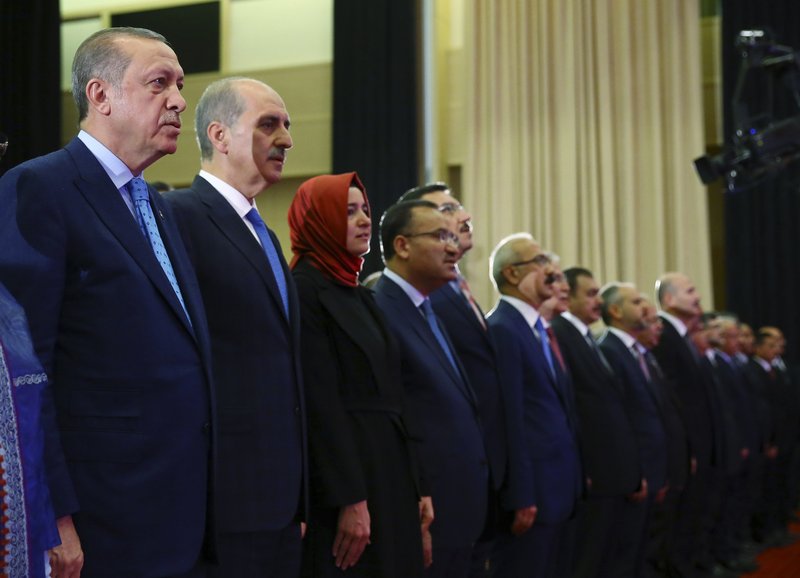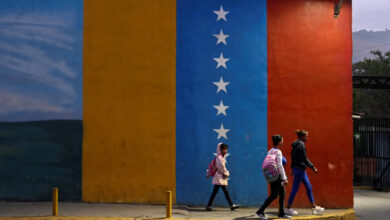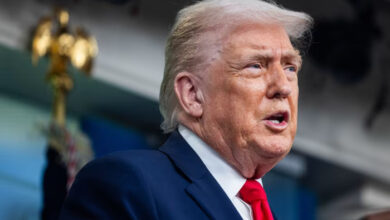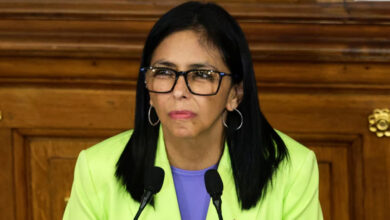
Venezuela’s ousted chief prosecutor and her husband, two of President Nicolas Maduro’s most outspoken critics, fled the country and landed Friday afternoon in Colombia.
Luisa Ortega Diaz and German Ferrer arrived in Bogota aboard a private plane traveling from Aruba, Colombian migration authorities said in a statement. The couple didn’t request asylum, according to a senior Colombian official speaking on condition of anonymity because he’s not authorized to discuss the politically sensitive case.
Ortega and Ferrer have long been aligned with Venezuela’s ruling socialist party but recently broke with Maduro, publicly denouncing his push to convene a constitutional assembly that was installed in early August and is now going about the task of upending Venezuela’s institutions.
One of the assembly’s first acts was to remove Ortega and appoint one of Maduro’s key allies, Tarek William Saab, as the nation’s new top law enforcement officer.
On Thursday, the government-stacked Supreme Court ordered Ferrer placed under arrest, a day after Saab accused him of orchestrating a $6 million extortion ring that allegedly occurred under Ortega’s watch.
Ferrer denied the accusations and many believe they are politically motivated.
In June, the Supreme Court barred Ortega from leaving the country and ordered her bank accounts frozen as part of its investigation into a complaint filed by a pro-government lawmaker that accused her of acting as an opposition leader and requested a probe into her “mental insanity.”
Univision reported Friday that Ortega and Ferrer fled in a speed boat to Aruba, which lies a short distance to the northern coast of Venezuela.
The couple’s whereabouts had been unknown for several days, but earlier Friday Ortega surfaced briefly, addressing by phone a gathering of Latin America’s prosecutors in Mexico.
Ortega told the region’s prosecutors that Maduro removed her in order to stop a probe linking him and his inner circle to nearly $100 million in bribes from Brazilian construction company Odebrecht. The company last year admitted in a plea agreement with the US Justice Department to paying bribes to officials throughout Latin America in exchange for lucrative contracts.
Ortega denounced the government takeover of the prosecutor’s offices and said many of her colleagues have faced persecution.
“Many have had to leave the country for fear of reprisal and for their lives,” she said.
Ortega first spoke out against Maduro in late March following a Supreme Court decision to nullify the opposition-controlled congress. She denounced the decision as a “rupture” of the constitutional order. The decision was later reversed amid widespread international criticism, but sparked a protest movement that has left more than 120 dead.
Maduro and his allies have frequently lashed out against Ortega, accusing her of being part of an opposition effort to overthrow Maduro. Diosdado Cabello, the leader of Venezuela’s socialist party, has repeatedly referred to her as the “traitor prosecutor.”
On the night of the constitutional assembly’s election, Maduro encouraged delegates to quickly declare her office in a state of emergency and remove her from office. Within days, military officers blocked her from entering her office.
Ortega fled on the back of a motorcycle.
Throughout the last four months of upheaval, Ortega has emerged as one of Maduro’s fiercest detractors, accusing him of trampling over late President Hugo Chavez’s legacy by convening the assembly to rewrite the 1999 constitution he crafted. She also challenged official versions of protest deaths, saying that state security forces and groups of armed, pro-government civilians were responsible for a large number of the fatalities, many young men in their 20s.
Ortega said publicly that her family had been threatened, but also vowed to defend Venezuela’s constitution “with my last breath.”
Earlier Friday, the pro-government constitutional assembly approved a decree giving it the authority to pass legislation to guarantee the peace, sovereignty and economic well-being of Venezuelans, virtually nullifying the already-enfeebled powers of the opposition-controlled National Assembly.
The move triggered further international condemnation from the dozens of countries that have already criticized the creation of the all-powerful assembly as an undemocratic power grab by Maduro.
Assembly delegates vowed to go after opposition lawmakers.
“We will teach them a historic lesson,” constitutional assembly President Delcy Rodriguez said as delegates voting by acclamation for the measure.




